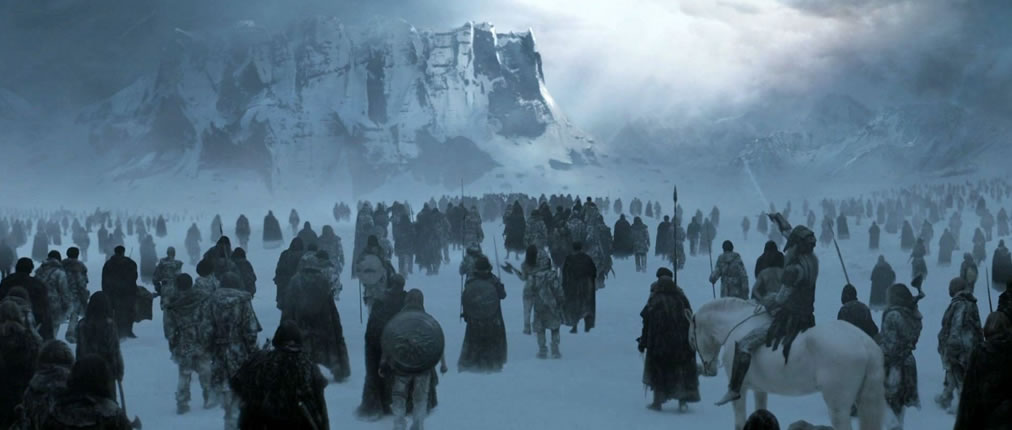
It is a popular phrase from the hit TV programme Game of Thrones
“Winter is coming!” was used to signal the prospect of decade-long winters, and subsequent summers, experienced by the inhabitants of mythical Westeros, where the popular drama was set.
Now, a research project from the universities of Southampton, Bristol and Cardiff has examined how the climate of Westeros compares to the real world.
Scientists have modeled the environment to explore the climate seen in Game of Thrones, using supercomputers to carry out simulations.
The results show that The Wall, where the land of Westeros is guarded from the White Walkers, has a climate in winter similar to that of Lapland. Casterly Rock, the stronghold of the Lannister family, has a climate similar to Houston, Texas and Changsha, China.
The wind speeds and directions predicted by the climate model also explain phenomena such as the dominance of the seas by the Iron Fleet, whilst the temperatures predicted by the model indicate the likely hibernation zones of White Walkers in summer.
The full results have been published in a mock journal article, also available in Dothraki and High Valyrian, languages used in Game of Thrones.
Gavin Foster, Professor of Isotope Geochemistry at the University of Southampton, worked on the study. He says:
Climate change is often described as one of the grand challenges facing humanity today, and this message would be very familiar to the residents of Westeros. Climate models can successfully simulate climates from the freezing world of the last Ice age to the intense warmth of the ‘Eocene greenhouse’ 50 million years ago. These same models are then used to simulate the future climate of our planet.


